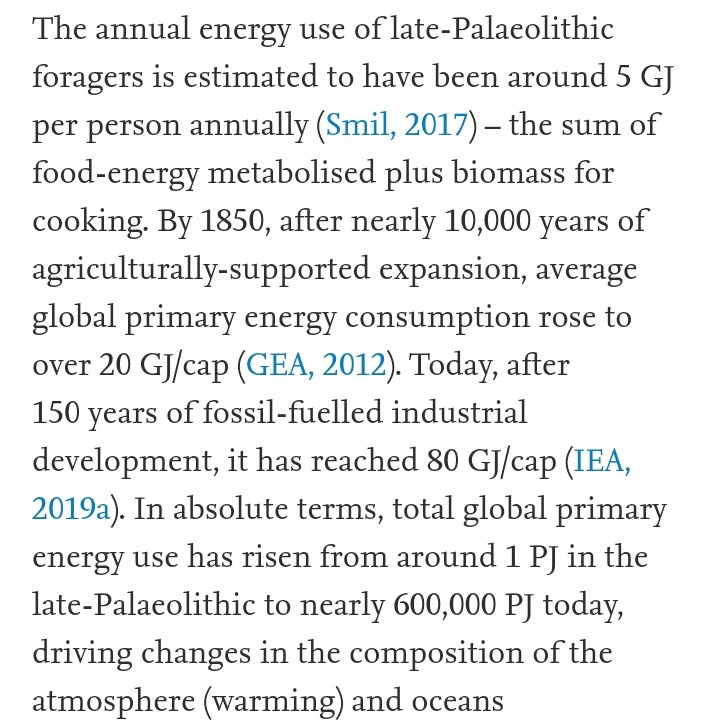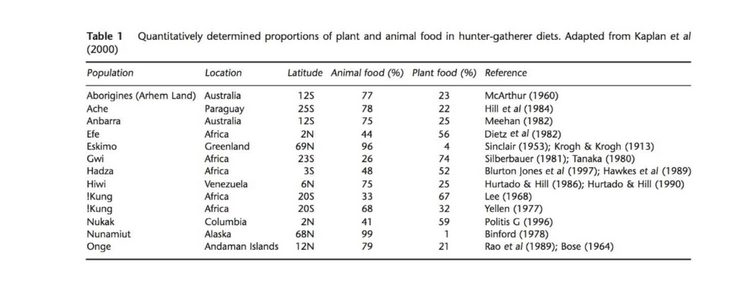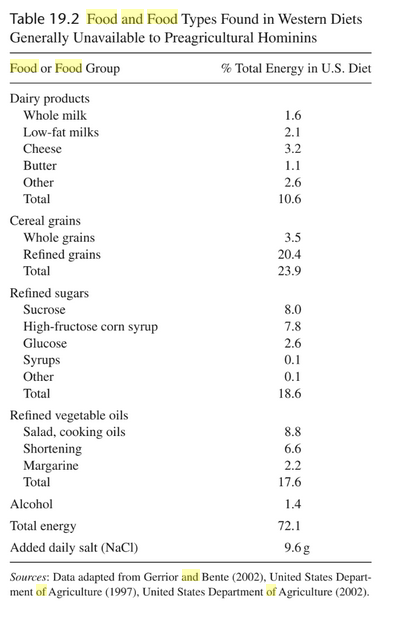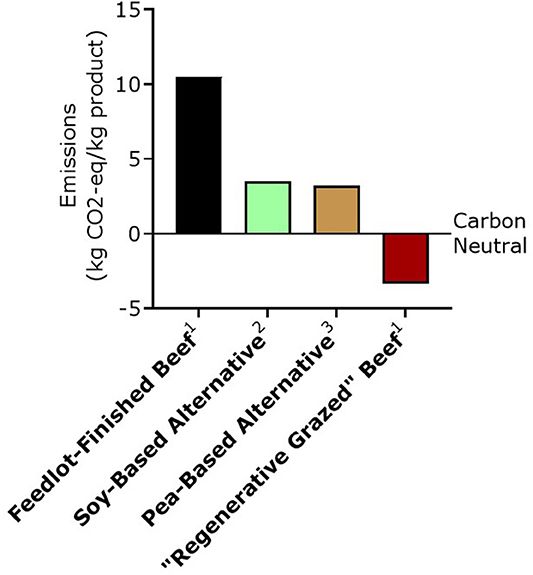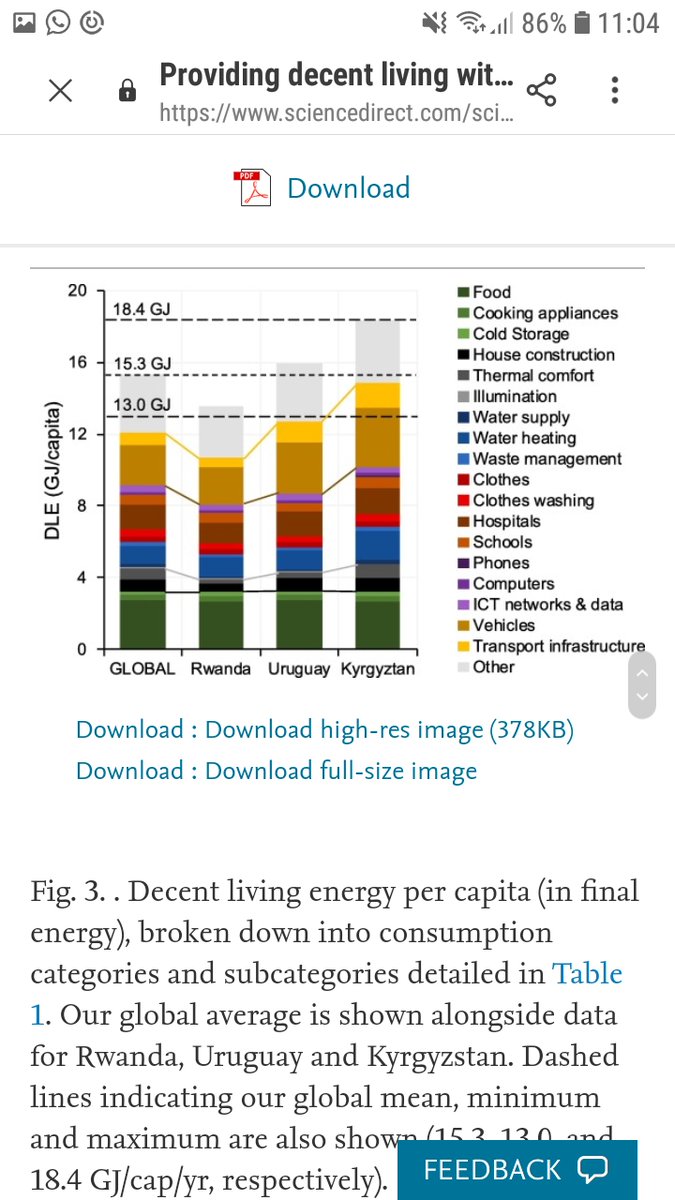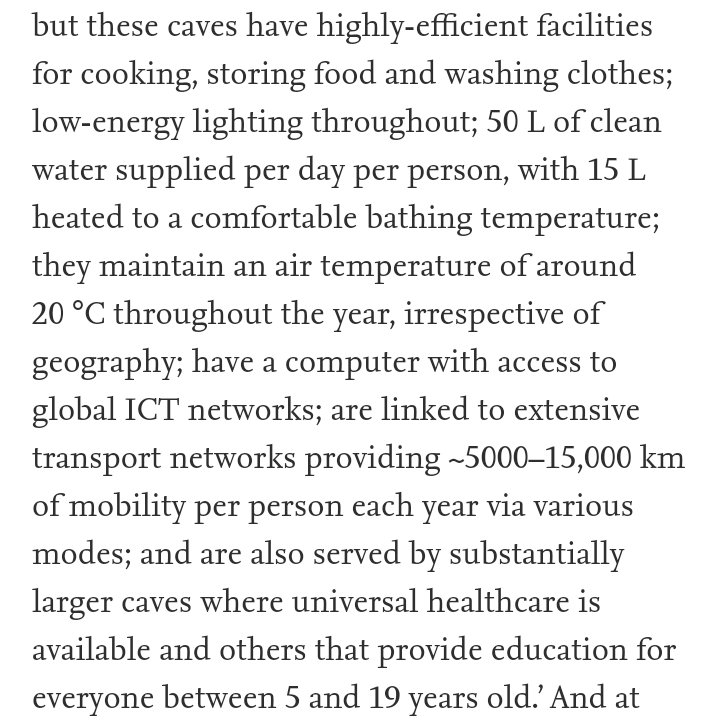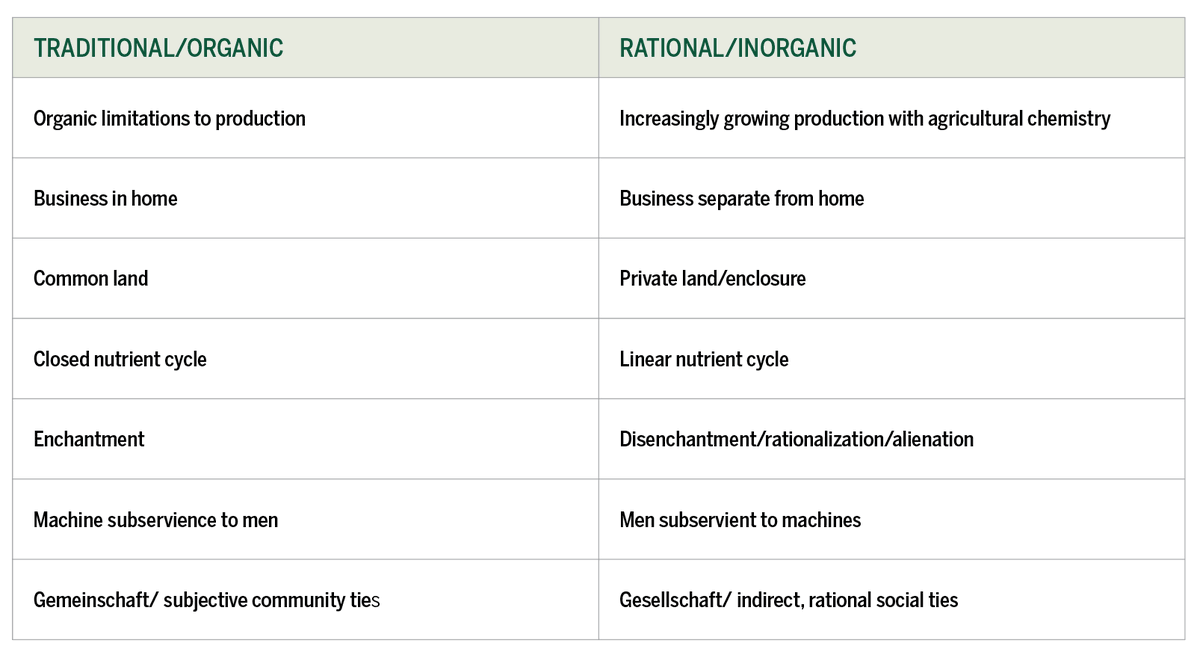Ok, time to talk about something that is somewhat of a lightening bolt for nuanced discussion: meat consumption.
Most assessments of our climate predicament end with some kind of call to limit the consumption of meat and dairy as like this *very obvious solution* https://twitter.com/JefimVogel/status/1358472059563737093
as like this *very obvious solution* https://twitter.com/JefimVogel/status/1358472059563737093
Most assessments of our climate predicament end with some kind of call to limit the consumption of meat and dairy
 as like this *very obvious solution* https://twitter.com/JefimVogel/status/1358472059563737093
as like this *very obvious solution* https://twitter.com/JefimVogel/status/1358472059563737093
Yet, in this same thread, the author linked to a paper by that (rightly) calls for sufficiency (as in, just enough resource consumption to live a good life). Those authors open their paper showing the very low energy consumption in the late paleolithic (hunter gatherers)
So, paleolithic people used 5 GJ/person and we use 80 GJ/person.
How they were able to subsist off of a fraction of our energy use?
And if agriculture is one of our biggest emitters, we might want to ask: what did they eat?
Turns out, a lot of animal products.
How they were able to subsist off of a fraction of our energy use?
And if agriculture is one of our biggest emitters, we might want to ask: what did they eat?
Turns out, a lot of animal products.
To put this into context. In the US, our consumption of animal products hovers around 28% of our diets. This puts us at the lowest of these hunter-gatherers, and certainly an outlier in the modern hunter-gathers studied here.
In fact up to 70% of the calories we currently eat were foods *not even available* in pre-agricultural times. Many of these foods (looking at you high fructose corn syrup!) were invented in the last century! Sounds healthy! 



Scientists: Ok, but it's actually modern animal agricultural practices that are terrible.
Me: Yes! Luckily we know there are certain animal management practices that not only sequester carbon but have high animal welfare and provide sufficient human livelihoods!
but have high animal welfare and provide sufficient human livelihoods!
Me: Yes! Luckily we know there are certain animal management practices that not only sequester carbon
 but have high animal welfare and provide sufficient human livelihoods!
but have high animal welfare and provide sufficient human livelihoods!
In fact, here in Uruguay (where I am) we are one of the highest per capita consumers of beef in the world  and are used as an example in the paper of a place with a pretty good standard of living with pretty low energy use.
and are used as an example in the paper of a place with a pretty good standard of living with pretty low energy use.
I can confirm, life here is lovely!
 and are used as an example in the paper of a place with a pretty good standard of living with pretty low energy use.
and are used as an example in the paper of a place with a pretty good standard of living with pretty low energy use.I can confirm, life here is lovely!
The authors rightly answer the question: oh you environmentalists just want us to live in caves, then?!?!
Maybe if your idea of a cave is a lovely home with internet, temperature control, hot water and access to transport, education and health care?
Maybe if your idea of a cave is a lovely home with internet, temperature control, hot water and access to transport, education and health care?
Meat consumption serves as an example of failed environmentalist messaging, which goes something like:
"you're bad, feel guilty"
Many well meaning people feel guilty for eating animal products because of this. But regenerative farming is actually a huge asset to our goals.
"you're bad, feel guilty"
Many well meaning people feel guilty for eating animal products because of this. But regenerative farming is actually a huge asset to our goals.
If we want know how to move forward using sufficiency (just enough to live well), we don't even have to go back to hunter gatherer times.
We can embrace what Weber called the traditional/organic era, but we can also have washing machines and internet and animal products!
We can embrace what Weber called the traditional/organic era, but we can also have washing machines and internet and animal products!
I say this as someone who is actually trying to live  sufficiently, and am surrounded by others doing the same (here in Uruguay). https://twitter.com/RizomaSchool/status/1350617615736176641
sufficiently, and am surrounded by others doing the same (here in Uruguay). https://twitter.com/RizomaSchool/status/1350617615736176641
 sufficiently, and am surrounded by others doing the same (here in Uruguay). https://twitter.com/RizomaSchool/status/1350617615736176641
sufficiently, and am surrounded by others doing the same (here in Uruguay). https://twitter.com/RizomaSchool/status/1350617615736176641
Many of the small scale ranchers I know are literally sequestering carbon with their practices. So, let's get to supporting their efforts and stop these blanket calls for reduction of animal products. We need nuanced calls for *increased* high-quality, regenerative production.
@soil4climate @EOMovement @sethitzkan @KarlThidemann @paigestanley_ag @REGENETARIANISM @regeneration_in @regen_network @SavoryInstitute @3LM_HM @SamOsbo05700900
Comment if you want a specific citation!

 Read on Twitter
Read on Twitter